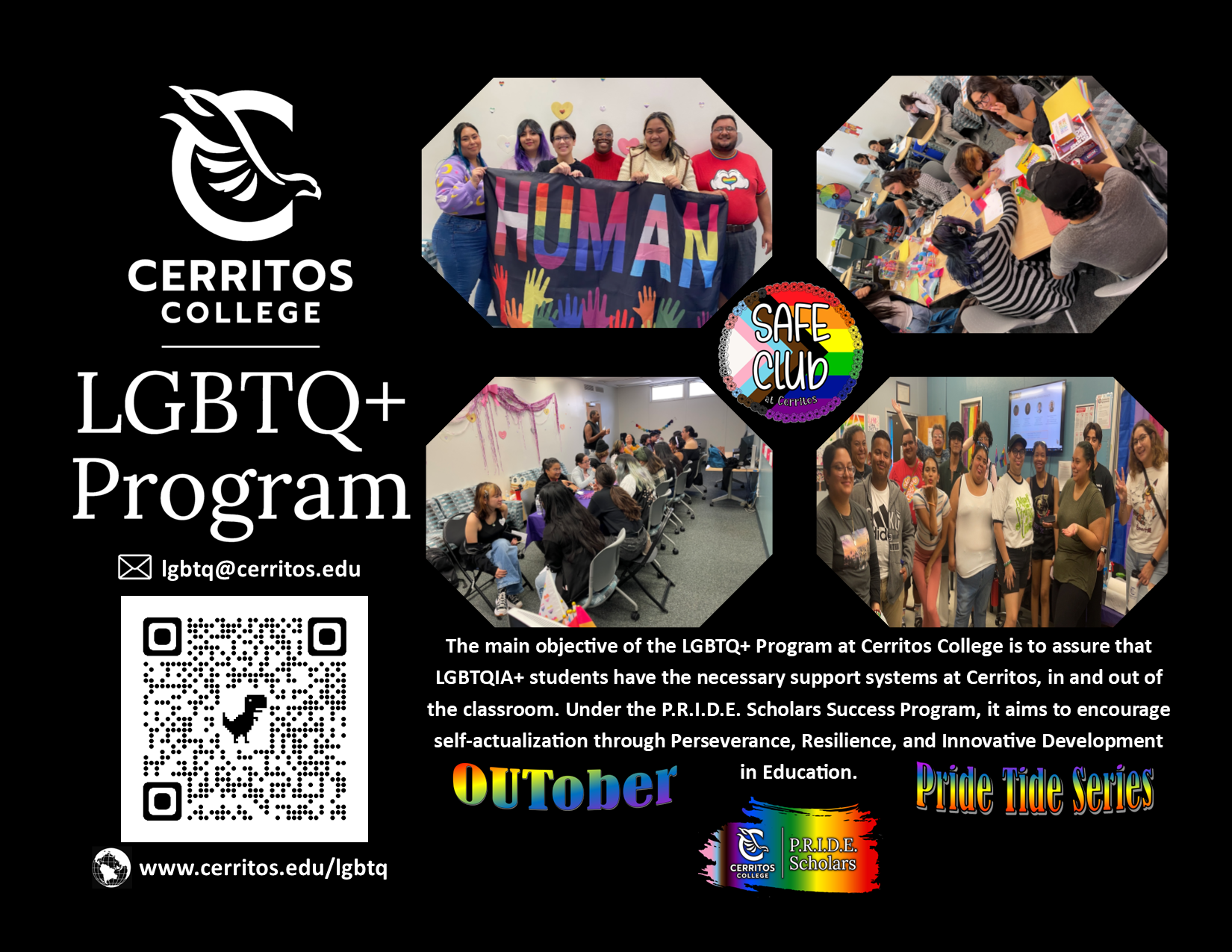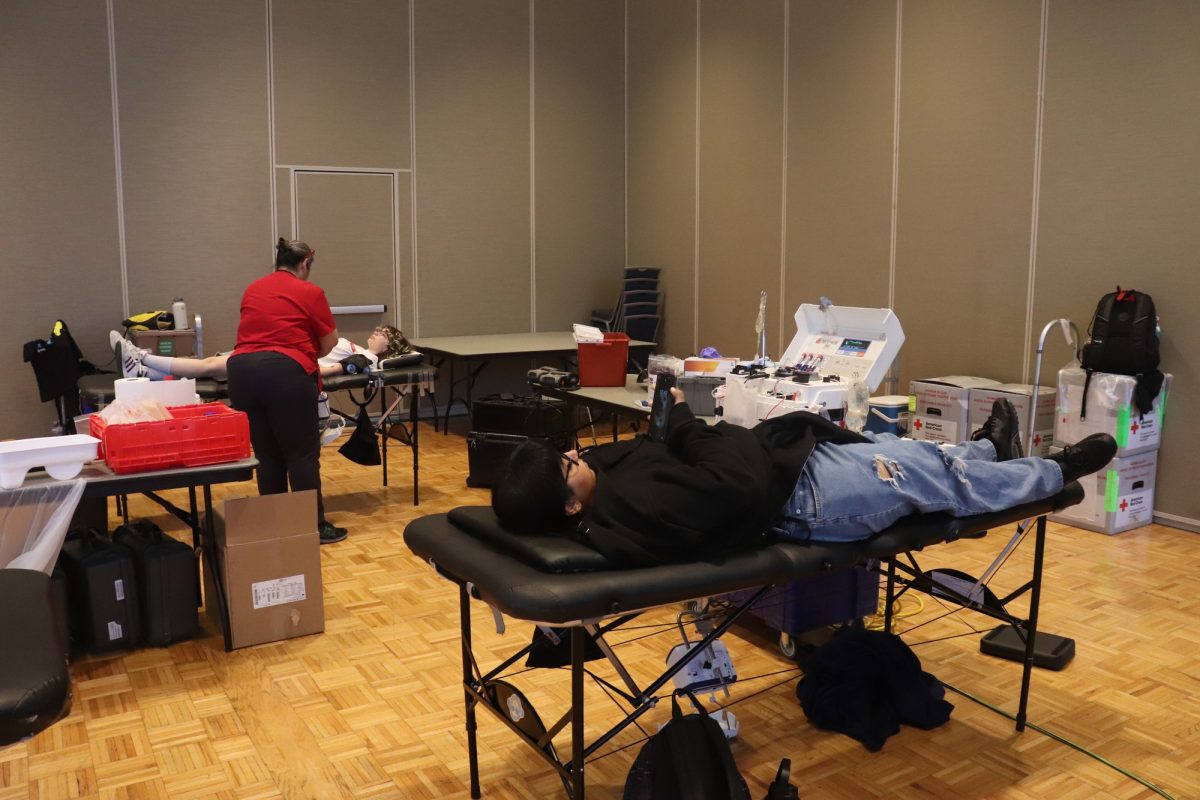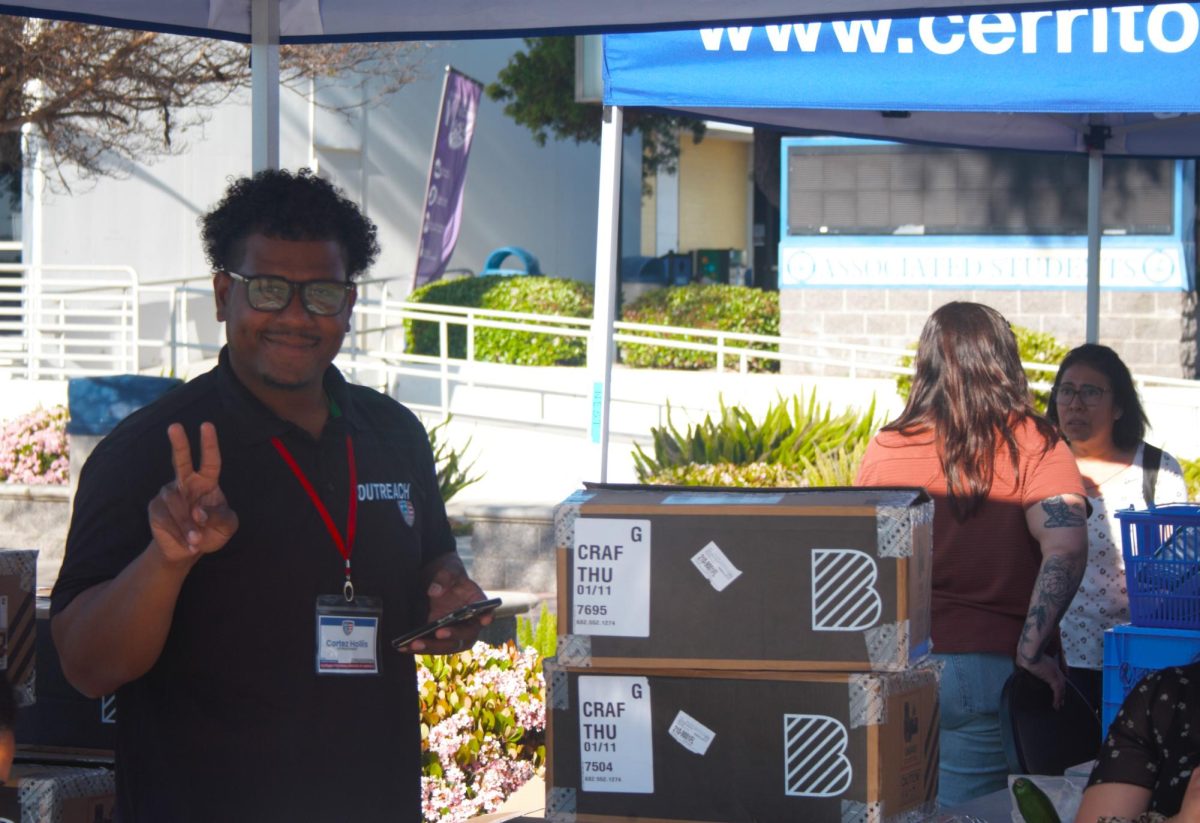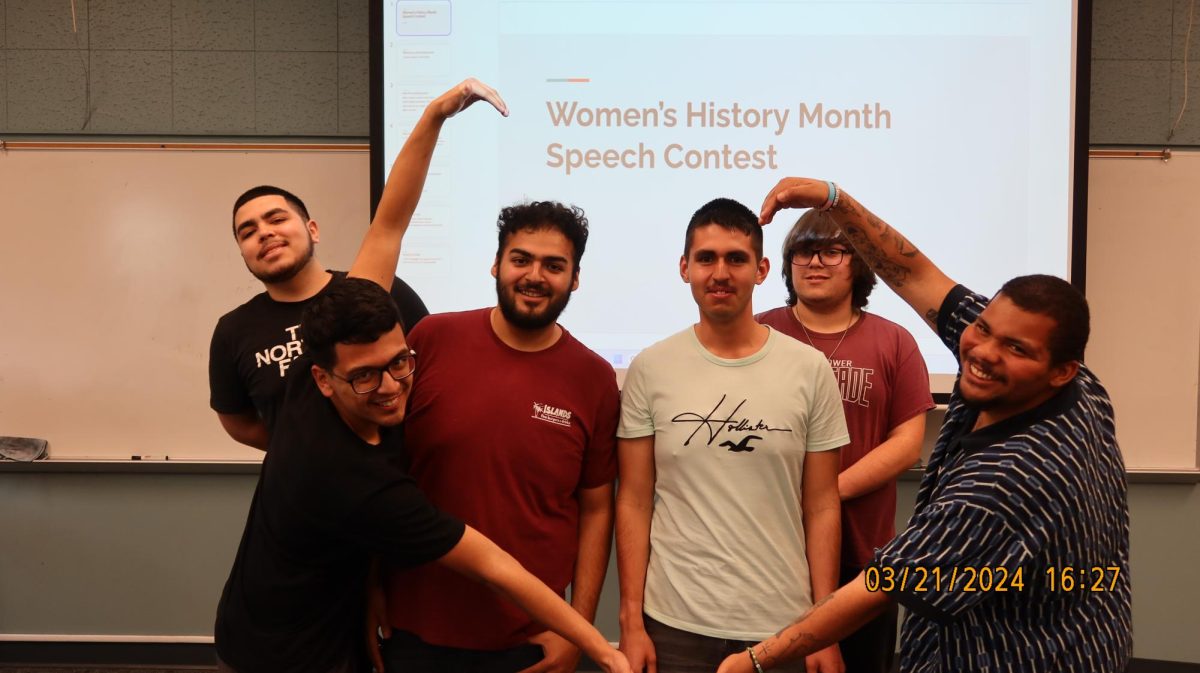Cerritos College held a workshop at the Student Center last Friday hosted by Kathleen Gabriel, author of Teaching Unprepared Students: Strategies for Promoting Success and Retention in Higher Education, who said that the fate of a student’s education is in their hands.
The workshop took place, courtesy of the iFALCON Title five grant, to tackle the challenges of teaching at-risk students, as well as reinforcing the principles of iFALCON.
“I think a lot of [content of the workshop] links pretty well with the iFALCON ideas… ways that we can act differently to encourage more success,” George Jarrett, history professor, said.
“It’s always good to take some time out of teaching to think about how to do it better.”
The Cerritos College faculty participated in many activities that Gabriel uses to engage her students, kicking off the workshop by using pink cards and green cards for a true/false quiz about unprepared students.
Valeria Christensen, instructor in the physical therapist assistant program, enjoyed the workshop.
“It was very interactive,” Christensen said, “so that was fun because it kept you engaged.”
Gabriel identified the characteristics of a possible at-risk student when arriving at college, saying that they may be the first in the family to go to college, but stressed that that may not always be the case.
Gabriel, a professor at California State University Chico, worked as a high school social science teacher and was a faculty development specialist at Arizona University.
A yellow ribbon cornered off nearly one-third of the tables from the workshop, a tool Gabriel uses to keep students from running to the back of the class.
Jarrett said he considered adopting it.
“I like the yellow ribbons; I might try that next week.
“In classes where the classroom isn’t full, it can be frustrating for an instructor to have students come in and they all sit in the back, even if they may have good reasons for doing that. It communicates the feeling that they don’t want to be there or they don’t want to be close to you, as the instructor,” Jarrett said.
Bryan Reece,dean of humanities and social sciences, said he thought there was a very good turnout, and he liked what Gabriel had to say.
Reece addressed the variable of student stress in unprepared students.
“One of the stress factors has to do with their success in college. I know when I was in college, one of the most stressful things was just grades and getting homework done and assignments done; learning material in the context of a very complicated life.
“So if we can help students with being more successful I think that will speak to stress issues.”
“What I always try to do as a faculty member is create an environment where everybody feels comfortable. …I just think you really have to diversify the student experience in that classroom, and the experience outside the classroom has to be very diverse, so you’re hitting all the ways that students like to learn,” Reece said.
Gabriel talked about doing more than just pointing students in the right direction, but suggested physically leading them to a resource like a tutoring center or to the financial aid department if they have budgetary issues.
“If you’re an approachable teacher and you can build some trust with your class, maybe helping students find the resources to help them out with their stress and then make your class really clear; clear expectations and delineate out what they need to do.
“Just remember; it’s not always an easy answer,” Gabriel said.
“I [once had] a math class, this teacher I just couldn’t understand him, and it was another math teacher who helped me out.
“We don’t always like all of our teachers, and that’s okay, that’s going to happen. But know that there’s other resources of people that can help you get through that class,” Gabriel said.
However, she also emphasized that instructors should “never do for your students what they can do for themselves.”
Christensen said that the best way to deal with stress is to study over a longer period of time; not just cramming the night before a test.
“…Good organization, and having a calendar and knowing what needs to be done next month and kind of having a plan of action, maybe helps,” Christensen said about alleviating stress.










